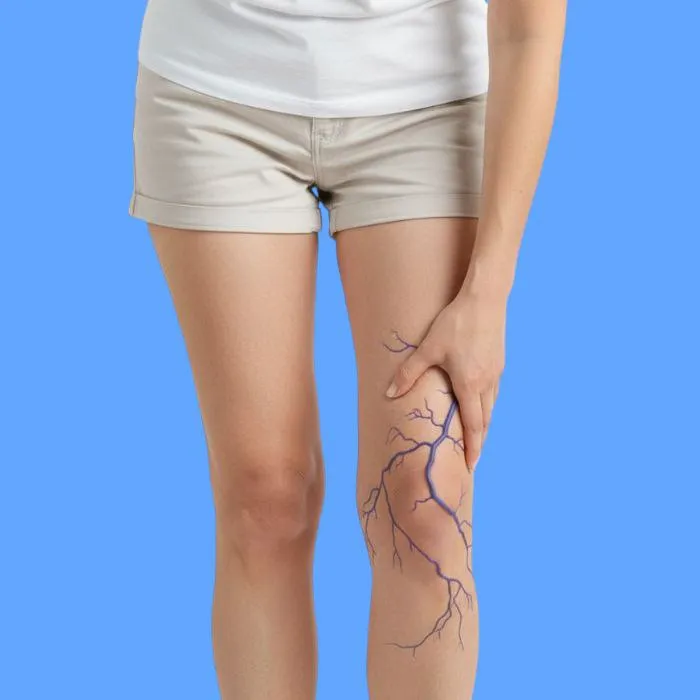What is varicose veins?
Varicose veins are a common condition affecting the veins, especially in the legs, appearing as bulging blue or purple veins under the skin.
Varicose veins occur due to weakened valves in the veins that help return blood to the heart, leading to blood pooling and swelling within the veins.
They often cause a feeling of heaviness or pain in the legs, especially after standing for long periods, and the condition worsens with age or pregnancy.
What are the causes of varicose veins?
There are several common causes of varicose veins, including:
- Weakened valves within the veins.
- Prolonged standing or sitting.
- Aging.
- Obesity and weight gain.
- Genetic factors.
- Pregnancy and hormonal changes.
What are the common symptoms of varicose veins?
Symptoms of varicose veins appear gradually, and include:
- Prominent, twisted veins under the skin.
- Heaviness or pain in the legs, especially at the end of the day.
- Swelling of the ankles or feet.
- Itching or discoloration of the skin around the affected vein.
- Muscle cramps at night.
When should you see a doctor?
It is recommended to consult a doctor in the following cases:
- If the pain worsens over time.
- If severe swelling or a change in skin color occurs.
- If ulcers or bleeding develop from the affected vein.
- If varicose veins appear after an injury or surgery on the leg.
- If symptoms are accompanied by sudden swelling in the foot.
How are varicose veins diagnosed?
Varicose veins are diagnosed using several medical methods, including:
- Clinical examination of the veins.
- Doppler ultrasound to assess blood flow.
- Sonography to locate weakened valves.
- Assessment of the severity of the condition to determine whether medication or surgery is required.
What are the treatment options for varicose veins?
Treatment options for varicose veins vary depending on their severity and include:
- Wearing compression stockings to improve blood flow.
- Regular exercise.
- Elevating the legs when resting.
- Using medications to improve vein walls and blood circulation.
- Surgical or laser intervention in advanced cases.
Can varicose veins be cured?

Varicose veins can be controlled and their appearance significantly improved, especially with early diagnosis.
Treatment depends on the degree of vein damage.
Mild cases may improve with conservative treatment, while severe cases require surgical intervention.
Adhering to a healthy lifestyle prevents recurrence and slows progression.
What are some tips for preventing varicose veins?
There are several tips for preventing or reducing the severity of varicose veins, including:
- Avoiding prolonged standing or sitting.
- Maintaining a healthy weight.
- Walking or swimming.
- Avoiding tight clothing.
- Elevating your legs after a long day.
What are the complications of varicose veins?
Some complications may occur if varicose veins are left untreated, such as:
- Inflammation of the affected vein.
- Superficial blood clots.
- Chronic skin ulcers.
- Permanent skin discoloration.
- Chronic swelling in the legs.
Frequently Asked Questions about Varicose Veins
Can varicose veins be treated without surgery?
Yes, in the early stages, compression stockings, medication, and lifestyle changes can be used to treat varicose veins.
Are varicose veins dangerous?
They are not dangerous in most cases, but they can cause complications if neglected.
Can varicose veins recur after treatment?
Yes, they can recur if preventive measures are not followed consistently.
Article Summary
Varicose veins are a common problem that can be easily managed if detected early. Maintaining regular physical activity and avoiding prolonged standing helps prevent them.
In advanced cases, surgical or laser treatment can be used to achieve the best results. Daily care of the legs is an essential part of maintaining overall health and blood circulation.